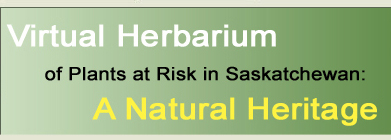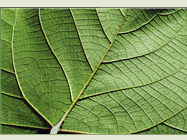| JUNCUS
KEY FOR SPECIES FOUND IN SASKATCHEWAN |
| |
| 1 Inflorescence appearing lateral;
leaves all basal |
2 |
| 1 Inflorescence appearing terminal;
may have at least one blade-bearing leaf on lower stem or leaves all basal |
3 |
| |
|
2 Bract stout, much shorter than stem;
perianth parts usually darker brown; anthers commonly much longer than their
filaments
|
J. balticus |
| 2 Bract slender, as long as or longer
than stem; perianth parts greenish to light brown; anthers commonly shorter
than or equal to their filaments |
J. filiformis |
| |
|
| 3 Leaves nodulose-septate (divided
by cross-partitions), terete, or if flattened, strongly equitant |
4 |
| 3 Leaves not nodulose-septate, terete
or if flattened, not equitant |
12 |
| |
|
| 4 Leaves strongly flattened and equitant |
5 |
| 4 Leaves terete or slightly compressed |
7 |
| |
|
| 5 Styles surpassing petals; seeds
with a distinct tail-like appendage |
J. tracyi |
| 5 Styles equal to petals; seeds without
a tail |
6 |
| |
|
| 6 Stamens 3; auricles lacking |
J. ensifolius |
| 6 Stamens 6; auricles present |
J. saximontanus |
| |
|
| 7 Flowers in dense spherical heads |
8 |
| 7 Flowers few to many in narrower
heads |
10 |
| |
|
| 8 Heads solitary; rhizomes densely
matted |
J. mertensianus |
| 8 Heads solitary; rhizomes elongate
and creeping, often bearing tubers |
9 |
| |
|
| 9 Tepals reddish-brown, inner tepals
longer than or equal to outer tepals; leaves 1 – 2 mm thick; sheaths
with yellowish auricles |
J. nodosus var. nodosus |
| 9 Tepals greenish to dull brown, inner
tepals shorter than outer tepals; leaves to 5 mm thick; sheaths with hyaline
auricles |
J. torreyi |
| |
|
| 10 Seeds about 1 mm long, with definite
white tail-like appendages |
J. brevicaudatus |
| 10 Seeds less than 0.5 mm long, apiculate
but without white tails |
11 |
| |
|
| 11 Anthers shorter than or equalling
their filaments; perianth segments obtuse; capsule exceeding the perianth |
J. alpinoarticulatus ssp. nodulosus |
| 11 Anthers distinctly longer than
their filaments; perianth segments acute; capsule shorter than or equal
to the perianth |
J. nevadensis |
| |
|
| 12 Each flower inserted singly on
the branches of the inflorescences and subtended by a pair of small bractlets
in addition to the bractlet at the base of the pedicel |
13 |
| 12 Each flower subtended only by the
single bractlet at the base of the very short pedicel |
19 |
| |
|
| 13 Roots fibrous; dwarf species, branched
near base; annuals; leaf sheaths not auricled |
J. bufonius |
| 13 Rhizomes elongate or short if culms
densely tufted; plants not dwarfed or branched near the base; perennials;
leaf sheaths auricled or prolonged |
14 |
| |
|
| 14 Leaf sheaths extending to about
halfway up the culm |
J. compressus |
| 14 Leaf sheaths confined to base or
only extending to about one third of the way up the stem |
15 |
| |
|
| 15 Sepals erect, closely appressed
to the capsule |
J. vaseyi |
| 15 Sepals spreading to ascending,
not closely appressed to the capsule |
16 |
| |
|
| 16 Auricles short and round; leaf
blades less than half the length of the culm |
J. dudleyi |
| 16 Auricles delicate and scarious;
leaf blades usually greater than half the length of the culm |
17 |
| |
|
| 17 Capsule 3-loculed, nearly equalling
the perianth; inflorescence compact |
J. confusus |
| 17 Capsule 1-loculed, distinctly shorter
than the perianth; inflorescence a loose panicle |
18 |
| |
|
| 18 Auricles prolonged into a membranous
projection 3 – 5 mm long |
J. tenuis |
| 18 Auricles shorter, up to 2 mm long,
submembranous |
J. interior |
| |
|
| 19 Seeds apiculate; leaves flattened
and grass-like |
J. longistylus |
| 19 Seeds with distinct white tail-like
appendages; leaves terete to somewhat compressed or deeply channelled |
20 |
| |
|
| 20 Culms arising from elongate rhizomes;
perianth and capsules dark brown to black |
J. castaneus ssp. castaneus |
| 20 Culms not rhizomatous, may form
tussocks; perianth and capsules pale |
21 |
| |
|
| 21 Capsules to 9 mm long; heads 1
– 2; lower cauline leaves 1 – 3 |
J. stygius ssp. americanus |
| 21 Capsules to 4 mm long; heads solitary;
leaves all basal |
J. albescens |






